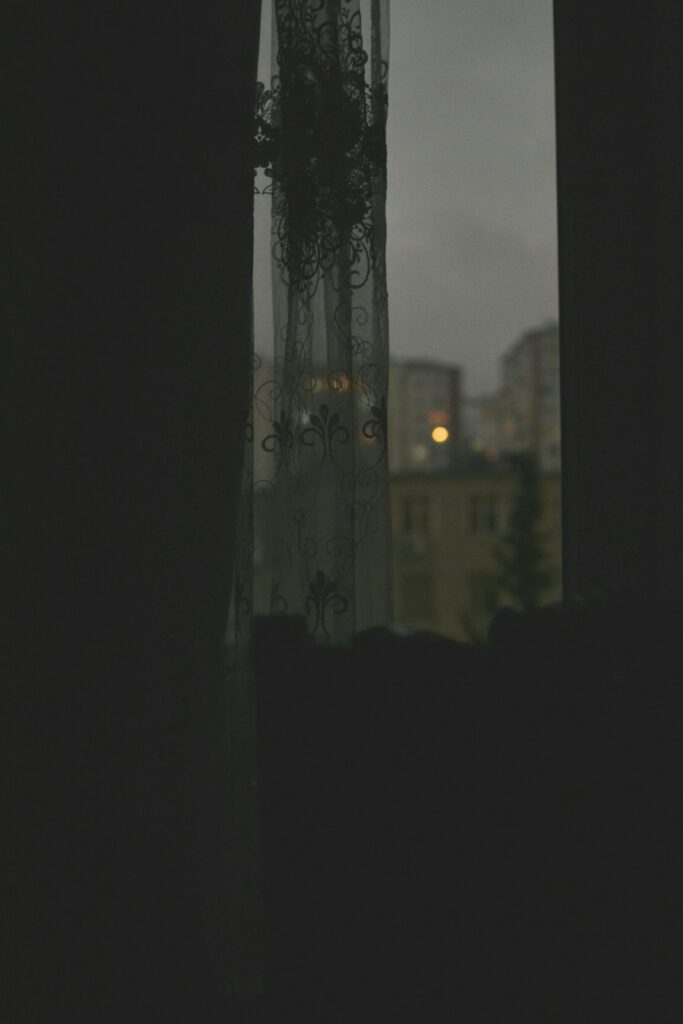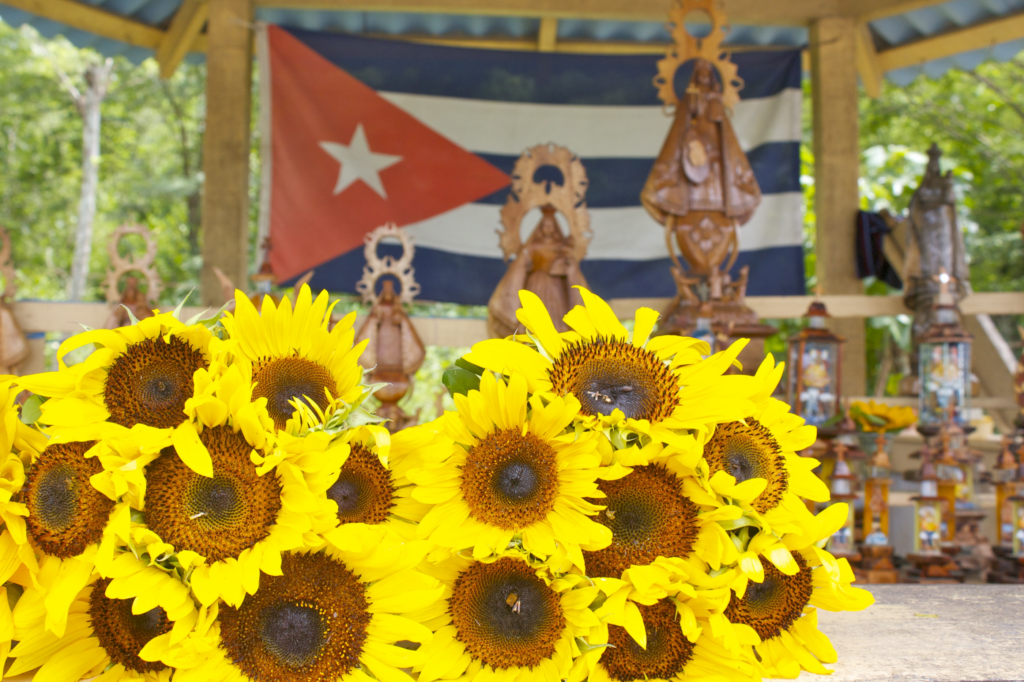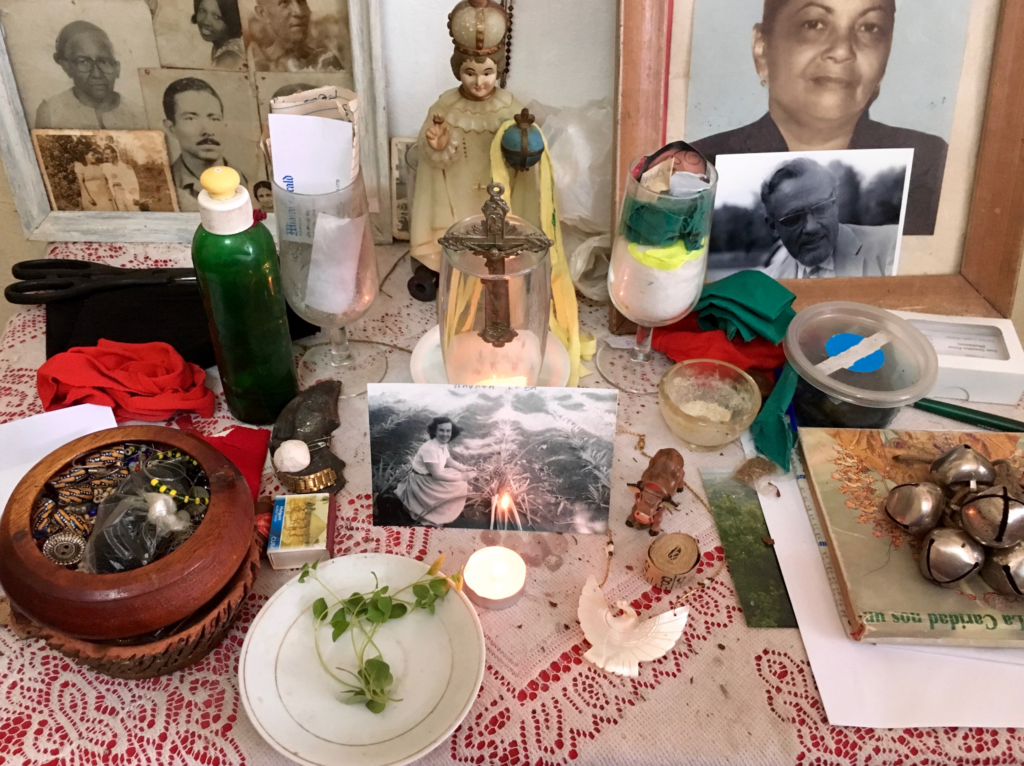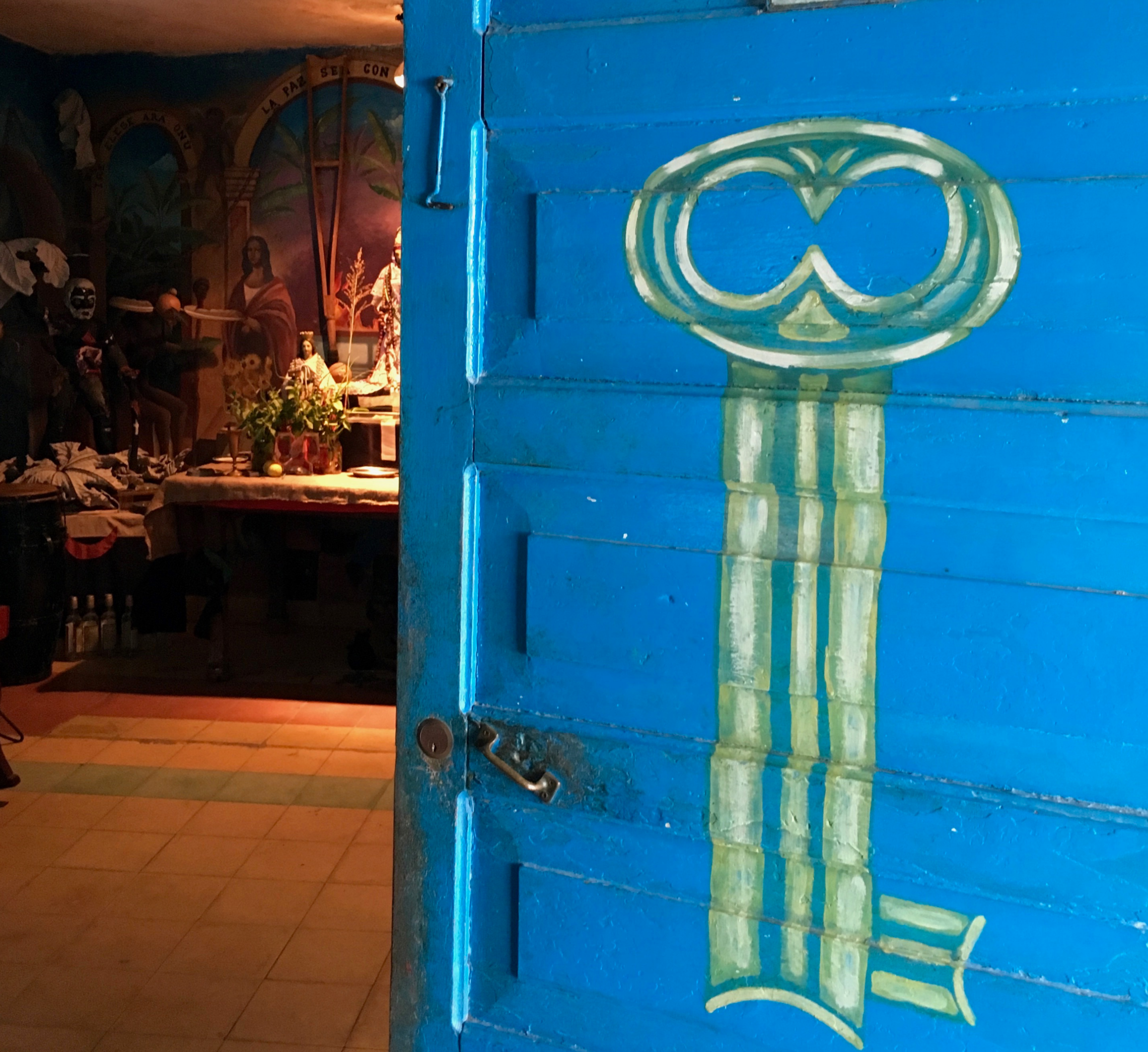“What have you come for?” Madelaine asks. And there it is, the question I’ve been circling ever since I first heard of a Spiritist in the small mountain town of El Cobre who talks with the dead.
With friends and family, I’d hardly dared speak of Madelaine. When I had, I’d treated the possibility of this visit as a lark, exaggerating the more salacious details: the telepathy; the raising of the dead. Omitting the part I kept secret even to myself—that I’d come not as observer but participant. That I wanted desperately to talk to my mother.
It had been decades since I’d heard her voice, the sound of it filling our house with scales and arpeggios as she washed the dishes. Pouring out the front door to call me in from a game of flashlight tag in the cul-de-sac. “Beeeeeecki, it’s time to come in for diiiinner.”
The last time I’d spoken with her, I was a sophomore in college, and she was dying in a hospital bed in St. Louis. She was fifty-nine.
*
Thirty years later, I have come to Cuba in search of her and that has led me to the house of Madelaine. In his sixties, he looks almost preppy in a striped shirt and shorts. His gray hair is cropped short to his head, and he has a neatly trimmed mustache.
An espiritista cruzado, he calls on both African and Catholic gods to help him cross the threshold and speak with the dead. His reputation had made its way to me where I live in Ohio. It was said that in his sessions the spirits overtook Madelaine so completely, speaking through him in a mix of Spanish and Bozal, an almost extinct language of enslaved Africans that his wife, Záhilys, needed to be present in order to translate.
Now, on a break from her job at the post office, Záhilys slips through the door of Madelaine’s workroom and joins us at one of three wooden chairs he’s placed at the center of the room. Her face is kind and round, her gray hair pulled back in a long braid. Around us every surface of Madelaine’s workroom spills over with the objects that bridge this space with the realm of the spirits: statues of saints clustered near jars of feathers and stones. Water goblets filled with photographs of the dead. Bells and maracas; Buddhas and cigars.
I look across at Madelaine. With his neatly cropped hair and sparkling eyes, he defies any portrait I had in my head of the sort of man who might live among such things.
“The real deal,” the people of El Cobre call Madelaine. As a child he could see things no one else could. Spirits looking through windows, shaking his bed at night.
“Mamá, close the curtains,” he’d told his mother, who couldn’t see what he did. “There are dead people looking at us.”

“I want to talk to my mother,” I tell Madelaine. My voice is barely a whisper. “Can we do it?”
Madelaine wrinkles his brow. “Have you brought anything?” he asks. He’s referring to the offerings that normally accompany a Spiritist misa like the one we’re about to attempt—a photograph of the deceased; her favorite flowers; an object she once touched. I think of the few things I’d kept of my mother’s—a turquoise bracelet; a wooden spoon she used when baking Christmas cookies and birthday cakes. A note she wrote two months before she died: Be my valentine in August, Becki. Because I love you always. I hadn’t thought to bring any of it with me, not even a photograph.
“It would be easier if we had something that belonged to her,” Madelaine tells me. “Something that held her aché. But I’ll try.”
He fumbles through piles of candles. Plucks a slip of paper and pencil from a bowl filled with beads, and asks me to write my mother’s name.
“Write it carefully,” he says, “so I can read it.”
I form the letters slowly, smiling as I print her first name. Mimi. Her parents had named her Maybelle, but at two years old my mother had insisted her name could not be something so silly, so irrelevant, so imprecise. She was not Maybelle. She was “Me.”
“Me! Me!” she’d pointed, red-faced and insistent, at her own self until her parents drove to the county office and changed her birth certificate to Mimi.
Now I savor each letter as my mother’s name springs to life beneath my pencil.
Mimi Meyers Huntman, Madelaine reads back to me. His voice trips over the guttural German sounds. When he finishes, he reaches for a goblet and fills it with water. “The medium through which we talk with the dead,” he announces as he drops the slip of paper into the glass and my mother’s name sinks to the bottom.
Madelaine then turns his attention to the preparations he hopes will entice my mother into the room. He lights a candle inside the upturned bowl of a hollow gourd, passes a bottle of cologne water around the circle, instructs his wife and me to christen our hands and head with the pungent scent he says will protect us from mischievous spirits that may try to attach themselves to us if we manage the break between worlds.
“Start singing and praying,” he tells Záhilys, “as if it were a Mass.” He joins her in the singing, and I expect to hear the Lucumí songs I’ve grown accustomed to among Santeros, but the two of them fill the room with Catholic hymns, both familiar and strange in their Spanish iterations. Madelaine’s voice rumbles like water breaking over stone. Záhilys’s rises clear and strong above it.
Time passes as one hymn makes way for another. From time to time, Madelaine pauses to fill a cup from the rum bottle he keeps near his feet. “It helps me get over myself,” he smiles, passing the cup to me, “so I can make room for El Cimarrón.” He is referring to the Maroon, an eighteenth-century runaway slave who speaks through him when he is in trance—the very spirit who, if we are successful, will help Madelaine communicate with my mother. I take a swig and feel the hard liquor rocket to my gut and head. Still, it’s hard for me to get over myself. I want so badly for this misa to work. I search my memory for any spiritual practice that might connect me with the traditions at work in the room. When my son Alex was young, I’d taken him to a Unitarian church where ministers spoke in hushed tones about a god they wouldn’t name. Tired of all that ambiguity, I’d run to a Pentecostal church where pastors stomped and shouted for our salvation. Most recently, I’d begun attending a Buddhist center where we meditated quietly on cushions.
I squeeze my eyes shut, lay my hands, palms up, on my lap.
“You’re trying too hard,” Madelaine chides me. “Whenever foreigners come, they think they have to strike some sort of official pose.” What he wants is for me to relax. Open my throat. Enter the chorus that he and Záhilys are weaving through the room.

The closest I’d come to their hymns was in the Congregational Church of my childhood. A crucifix gleamed at the front altar. The choir created pageantry as they filed in, not from the back of the church like the rest of us, but from the front, emerging as if from a secret chamber. Many sang in that choir, but it’s hard to remember them because it is always my mother’s figure, her face, her voice that I recall. She was in her forties then. Neither particularly tall nor large, but with a presence that seemed to fill every atom of space around her. As she sang, the light would stream through stained glass onto the hymnal she held open at her chest, her red and gold robes falling from her shoulders like wings. Her pure, strong voice—professionally trained as an operatic soprano—could rise as effortlessly as a bird taking flight. Its fullness announced that this is what she had come to do. Everything she had given her attention to throughout the week—her family, her sewing projects and her students, our house on Marvilla Lane—all funneled into this one moment. Everything she was made of was held in these notes she offered.
When the congregation joined in, I’d strain to listen past my father’s voice, gruff and off key, and tune my voice to hers. But I was as tone deaf as my father, my sisters told me, and so I’d move my lips as if I were singing, hoping no one would notice I was only pretending.

In Madelaine’s workroom, I find myself again going through the motions, joining when I can in Spanish, other times in English, always keeping my voice low enough to escape being heard. I’m ashamed for the Spiritist and his wife to hear my voice, afraid that they, who can summon such beauty from inside themselves, will discover that I’m tone deaf. Not just in song, but at my core.
But Madelaine is insistent. “We have to hold the energy of this space together if we’re going to get your mother in the room,” he tells me. And so, I try. I make up words, push myself to hum along. Still, I’m in my head, worried more about the quality of the sound I might make than the act of making it. Madelaine drops his head into his hands. “I feel nothing,” he tells his wife.
I will myself to try harder, tell myself it doesn’t matter whether or not I can sing. What matters is that I sing. While I struggle to join in, Zahilys rises from her seat to stand near Madelaine. He leans his body into hers, takes her hand in his. With his free hand, he touches his wife’s face, her shoulders. Tenderly. Loosens her salt-and-pepper hair from its braid and combs his fingers through it till it falls down her back. Leads her into a slow underarm turn, first in one direction, then the other, their voices turning from the hymns they’ve been singing to a song I’ve never heard.
Ay Madre, Záhilys begins, oye mi voz, oye mi voz.
Oh Mother, hear my voice.
Misericordia, Poder Divino, Madelaine breaks in, his gravelly voice braiding a new refrain through hers.
Misericordia, Madre de Dios…
Misericordia para este ser…
My mind fixes on misericordia, this word that sounds like misery but means mercy as mysterious as everything else about this gathering. From the Latin root meaning “pity” and also “heart,” it conjures that fine line between pain and glory, between holding on and letting go. It was the thing Catholics call holy spirit and Santeros call aché. The spirit my mother carried in her voice. I feel it surging inside me now, something like wings beating inside my chest.

“It’s time to call your mother into the room,” Záhilys says, motioning for me to stand. “Say her name.”
I pause as I struggle to locate my mother’s name among the jumble of the room.
“Mimi Meyers Huntman,” I stutter, my throat still unaccustomed to making sound. And again, more loudly. “Mimi Meyers Huntman.”
My voice gains strength with each repetition and the cadence of my mother’s name forms a base beat for Zahilys and Madelaine’s chorus:
Misericordia, Madre de Dios…
Ay Madre, oye mi voz…
Mimi, I join in. Mimi. Then Mother. And then Mamá, both the Spanish and the child’s name for her.
I close my eyes. When I open them, I feel a change in the room. A stillness has risen in the space between us. Not the kind I’ve seen in movies where an invisible wind blows in from nowhere to extinguish the medium’s candle, but not entirely unlike that either. Madelaine, who is still singing, begins to stutter.
Zahilys nods. “He’s going into trance,” she tells me. “El Cimarrón is taking over.”
I see the change in his body. His head bobs. His eyes widen. I get a sense that he is no longer looking at but through me. Madelaine, or rather this man who is now both Madelaine and El Cimarrón, takes my hands and lifts me from my seat. He turns me under his arm and dances me first in one direction, then the other.
Misericordia, he sings. His cheeks are wet with tears, and his voice is like the tearing of silk. The room fills with something that feels like church. An anointing, like oil rippling through the air.
Záhilys whispers, “The spirit is taking hold.”

Excerpted from My Mother in Havana: A Memoir of Magic & Miracle by Rebe Huntman, published by Monkfish Book Publishing Company (2025) Rhinebeck New York. Reprinted with permission.
Feature image and all captioned photos provided by the author.






